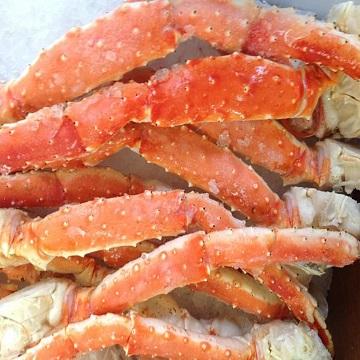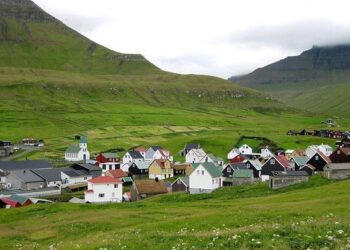Sanctions targeting prominent Russian seafood companies have sent ripples through the Faroese fishing industry, raising concerns over supply chain disruptions and market uncertainty. As the Faroe Islands maintain close trade ties with Russia, industry leaders are closely monitoring the evolving geopolitical landscape and its potential impact on their operations. This article delves into how recent restrictions are placing pressure on Faroese exporters and processors, highlighting the challenges faced amid tightening international measures.
Sanctions on Russian Seafood Giants Shake Faroese Market Dynamics
The ripple effects of international sanctions targeting Russia’s seafood industry have sent shockwaves through the Faroese market, where several key players maintain strong trade ties. As Moscow’s largest operators face restrictions on exports and financial transactions, importers and distributors in the Faroe Islands are scrambling to reassess supply chains and partnerships. This disruption has prompted local businesses to explore alternative sourcing, with an eye on diversifying away from dependence on Russian suppliers to safeguard the stability of their operations.
Key challenges emerging in the Faroese seafood sector include:
- Supply chain delays and increased logistics costs
- Price volatility in both raw materials and finished products
- Uncertainty over contract fulfilments and payment mechanisms
Industry insiders report that the restructuring of partnerships is accelerating, with a notable rise in collaborative efforts among Nordic and North Atlantic exporters to fill the void left by Russian giants. The evolving landscape may ultimately reshape the market’s competitive dynamics, catalyzing innovation and resilience but also testing the adaptability of smaller Faroese companies.
| Aspect | Impact | Faroese Response |
|---|---|---|
| Export Restrictions | Sharp decline in Russian seafood imports | Seeking new sourcing from Iceland & Norway |
| Financial Sanctions | Delayed payments and banking complications | Leveraging alternative payment systems |
| Market Uncertainty | Volatility in pricing and contract stability | Strengthened local contracts and partnerships |
Impact on Faroese Export Chains and Local Employment Patterns
The ripple effects of sanctions imposed on Russian seafood giants have unsettled the Faroese export chains, which have traditionally leaned heavily on these Russian partnerships. Disruptions in supply routes and increased regulatory scrutiny have compelled Faroese exporters to pivot rapidly, seeking alternative markets in Europe and Asia to stabilize trade flows. This sudden shift has not only heightened operational costs but also placed pressure on export schedules, challenging the resilience of logistics networks deeply intertwined with Russian firms.
On the employment front, local fisheries and processing plants face an uncertain future as these export changes trickle down to workforce dynamics. While some operators have begun to diversify product offerings and invest in automation to mitigate labor risks, many workers confront fluctuating job security. The following table highlights emerging trends in employment and export adjustments since the sanctions:
| Category | Pre-Sanctions | Post-Sanctions |
|---|---|---|
| Export Destinations | 60% Russia | 40% Russia; 30% EU; 30% Asia |
| Local Employment Stability | High | Moderate with fluctuations |
| Processing Plant Automation | 15% | 35% and increasing |
- Exporters are intensifying efforts to secure non-Russian buyers.
- Workers experience notable shifts toward seasonal and part-time roles.
- Local industry players advocate for government support to cushion transitional impacts.
Strategic Recommendations for Faroese Industry to Navigate New Trade Barriers
The imposition of sanctions on Russian seafood exporters demands swift and innovative responses from the Faroese industry. To mitigate risks and capture alternative opportunities, diversification of markets must be prioritized. Targeting emerging economies with growing seafood consumption can reduce dependency on traditional trade routes. Additionally, investing in enhanced supply chain transparency will improve resilience by enabling quicker adaptation to global regulatory changes. Businesses should also explore collaborative ventures within the North Atlantic region, leveraging shared resources and expertise to sustain competitive advantage amid shifting geopolitical landscapes.
Adopting modern technologies and sustainable practices can serve as a dual strategy for navigating new trade barriers while appealing to increasingly eco-conscious consumers. The table below outlines core strategic actions alongside potential benefits and timelines for implementation, offering an actionable roadmap for Faroese firms in the current climate:
| Strategic Action | Expected Benefit | Implementation Timeline |
|---|---|---|
| Market Diversification | Reduced market risk | 6-12 months |
| Supply Chain Transparency | Improved compliance & agility | 3-6 months |
| Regional Partnerships | Resource sharing & innovation | 12-18 months |
| Sustainability Initiatives | Brand differentiation & market access | Ongoing |
In Conclusion
As sanctions on major Russian seafood companies continue to tighten, the Faroese fishing industry faces mounting uncertainty. With longstanding trade ties disrupted and supply chains strained, local exporters and processors are adapting to a rapidly shifting market landscape. Stakeholders remain cautiously optimistic but vigilant, acknowledging that much will depend on how geopolitical tensions evolve in the coming months. The situation underscores the broader ripple effects sanctions can have beyond their immediate targets, reshaping industries across the North Atlantic region.
















